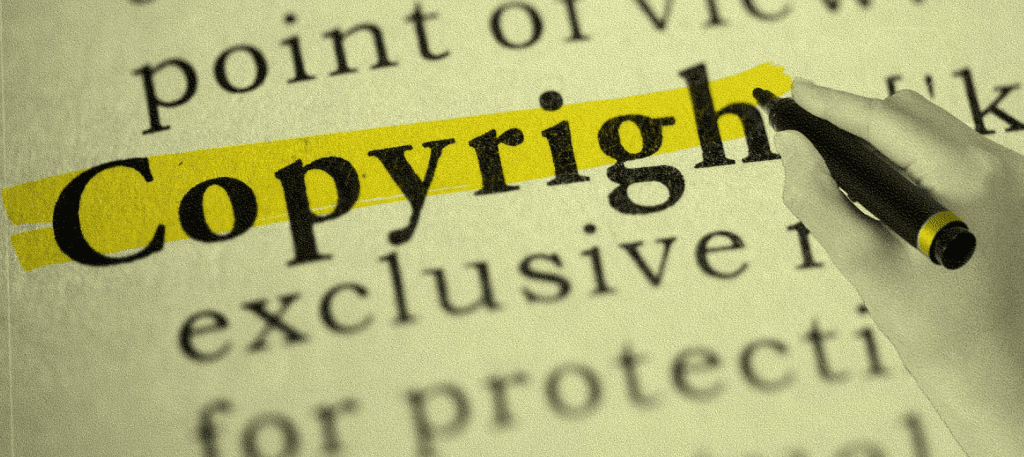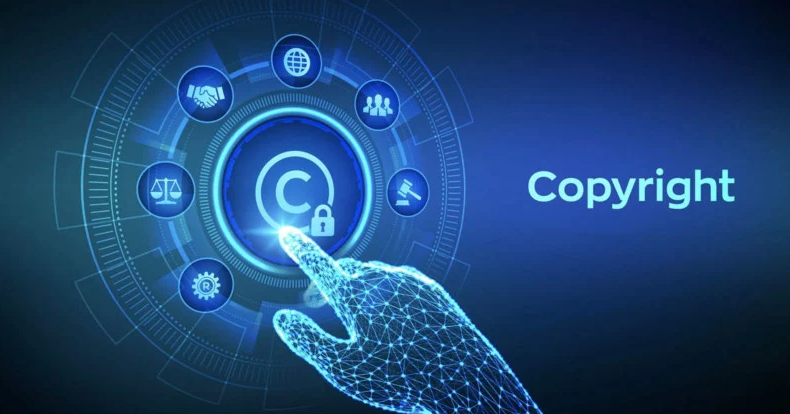In the ever-evolving landscape of digital content creation, the rise of Artificial Intelligence (AI) technology brings both opportunities and challenges. Freelance and agency copywriters must stay informed about AI’s potential impact on copyrights, as it has the capability to generate content swiftly and efficiently. This article explores the critical aspects of AI, copyrights, and content creation, shedding light on the implications and considerations for copywriters in this dynamic environment.
Understanding AI and Copyrights
AI technology, with its ability to mimic human intelligence processes, is now integral to various aspects of content creation, from music and literature to visual art. However, this integration raises fundamental questions regarding copyright ownership. In traditional content creation, the creator typically owns the copyright. Still, with AI-generated content, determining the creator becomes complex.
The copyright for AI-generated content may belong to the person who developed the AI algorithm responsible for the creation or the individual who trained the AI algorithm. Moreover, there’s uncertainty about whether AI-generated content qualifies for copyright protection, further complicating matters.
Essentials of Copyright
Copyright is a legal concept that grants exclusive rights to creators of original works, allowing them to control usage, distribution, and profits from their creations. These protections apply to various forms of creative works, including literature, music, art, and software. To be eligible for copyright protection, content must be original, fixed in a tangible medium, and demonstrate creativity.
Copyright holders have the exclusive authority to manage the usage, distribution, and display of their works, prohibiting unauthorized use or reproduction without permission. While exceptions like fair use exist, unauthorized usage of copyrighted work constitutes infringement, potentially leading to legal actions and monetary damages.
AI and Copyright Infringement

AI-generated content can potentially infringe upon existing copyrights. For instance, AI tools may create text or art that closely resembles copyrighted material, leading to debates about whether the AI-generated content qualifies as derivative work or infringement.
Addressing these challenges involves considering new frameworks within copyright law that account for the unique attributes of AI-generated content. These frameworks might redefine authorship, ownership, and mechanisms for enforcing copyright in the context of emerging AI technologies.
Consequences and Impact on Copywriters
AI-generated content, while efficient, presents several consequences and challenges for freelance and agency copywriters:
- Editing and Quality Checks: AI-generated content may contain grammatical errors and issues with flow, requiring human intervention.
- Incorrect Data Points: The factual accuracy of AI-generated content can vary, necessitating fact-checking.
- Lack of Original Ideas: AI lacks the capacity for originality and new ideas, which are crucial for engaging content.
- Lack of Personalization: AI lacks emotional intelligence to create personalized and compelling narratives.
- Unintentional Plagiarism: AI tools trained with copyrighted materials may inadvertently produce spun content.
The Role of AI in Freelance and Agency Copywriting
AI technology’s rapid advancement has raised concerns about its potential to replace copywriters. While AI can generate content quickly, it cannot perform essential tasks such as conducting interviews, engaging with subject matter experts, or adding citations to data. Copywriters should not fear AI but rather consider it a tool to enhance their work processes.
Considerations for Copywriters
Copywriters operating in the AI-driven content landscape should keep several key points in mind:
- AI and Copyright Awareness: Stay informed about AI’s capabilities and limitations regarding copyrights.
- Protection of Intellectual Property: Take proactive measures to safeguard your work, such as watermarking graphics and monitoring for unauthorized use.
- Transparency with Clients: If AI is used in content creation, ensure transparency with clients, and attribute AI-generated content accordingly.
- Leveraging AI: Embrace AI as a complementary tool to automate specific tasks like keyword research and ideation, enhancing your content creation process.
In conclusion, AI’s integration into content creation presents both opportunities and challenges for freelance and agency copywriters. It is crucial to remain vigilant about copyrights, protect intellectual property, and consider AI as a valuable ally rather than a replacement. As AI continues to shape the industry, informed and adaptable copywriters will thrive in this evolving landscape.


Recent Comments